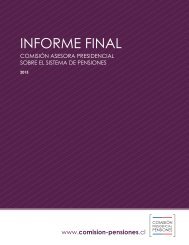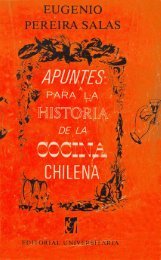ANNUAL
Scientific-American-world-view-2016
Scientific-American-world-view-2016
You also want an ePaper? Increase the reach of your titles
YUMPU automatically turns print PDFs into web optimized ePapers that Google loves.
All in the Family<br />
A health crisis can spawn<br />
the ultimate application<br />
of biotechnology—<br />
attempting to save<br />
a loved one’s life<br />
BY RENEE MORAD<br />
Doctors diagnosed<br />
Karen Aiach’s<br />
daughter Ornella,<br />
at just six months<br />
old, with a rare<br />
condition called<br />
Sanfilippo syndrome,<br />
in which<br />
a missing enzyme causes toxic substances<br />
to build up in the body. Aiach<br />
began educating herself on everything<br />
from the disease’s symptoms<br />
and outlook to its leading physicians<br />
and researchers. “With information<br />
so readily available these days, the<br />
wall between patient and their caregivers<br />
and doctor is diminishing,”<br />
Aiach says. “I learned which authors<br />
were publishing research studies and<br />
felt empowered to pick up the phone<br />
and contact them to learn as much as<br />
I could, as quickly as I could.” Aiach’s<br />
research motivated her to leave her job<br />
running a consulting company and<br />
start Lysogene, a biotechnology firm in<br />
France that is currently developing gene<br />
therapy to treat Ornella’s syndrome and<br />
other neurodegenerative diseases.<br />
When faced with a loved one’s difficult<br />
diagnosis, most people describe<br />
feelings of being jolted into a race<br />
against time. I recently caught up with<br />
a group of entrepreneurs who have all<br />
lived through this experience and gone<br />
on to create remarkable biotech companies<br />
to improve outcomes for their<br />
family members and others. Confronted<br />
with a life-or-death situation,<br />
these individuals didn’t just hope or<br />
yearn for good news, they created their<br />
own—with the help of a carefully enlisted<br />
team of strategic partners. Their<br />
biotechnology-related companies and<br />
organizations, though inspired by the<br />
plight of a loved one, went on to enrich<br />
the lives of dozens, hundreds, and in<br />
some cases, thousands of individuals<br />
facing similar obstacles.<br />
ADJUSTING A GENE<br />
Patients with Sanfilippo syndrome<br />
develop mentally and physically up<br />
to age four, then lose what they have<br />
learned, while suffering from sleep<br />
disorders and hyperactivity. The<br />
median life expectancy is 15 to 18<br />
years of age. Aiach’s initial research<br />
revealed that few treatments were<br />
in progress for this syndrome and<br />
that gene therapy would be the most<br />
promising course to take. “I set out to<br />
find a therapeutic approach to the disease<br />
to make life more manageable for<br />
When faced with a loved ones difficult<br />
diagnosis, most people describe feelings<br />
of being jolted into a race against time.<br />
my daughter and others struggling<br />
with the syndrome,” Aiach says.<br />
Lacking a medical background,<br />
Aiach hired a key neurobiologist and<br />
other staff members to help lead the<br />
way. Just a few years after the company’s<br />
launch in 2009, Lysogene conducted<br />
Phase I/Phase II clinical trials<br />
of an experimental treatment. The<br />
genetic therapy has gone on to make<br />
a positive impact on Ornella’s dayto-day<br />
wellbeing. “She’s quieter and<br />
calmer now, not enduring as severe<br />
bouts of hyperactivity, and is leading<br />
an overall happier life,” Aiach says.<br />
Although it’s still a work in progress,<br />
Aiach is confident Lysogene is moving<br />
in the right direction.<br />
A POWERFUL<br />
ONLINE COMMUNITY<br />
In 1999, Jamie Heywood received<br />
devastating news that his brother<br />
Stephen had been diagnosed with<br />
amyotrophic lateral sclerosis (ALS).<br />
The crisis, Heywood says, immediately<br />
brought his already tight-knit<br />
family together to “an amazing level<br />
of closeness and collaboration.” His<br />
family teamed up in numerous ways<br />
to help Stephen face his condition<br />
and to give him a fighting chance by<br />
gaining access to the best doctors.<br />
They also set out on a mission to help<br />
him experience the highest possible<br />
quality of life.<br />
“We immediately started building<br />
things, because that’s what my family<br />
does,” Heywood says. That meant<br />
extensive remodeling projects—<br />
which was a passion of Stephen’s—to<br />
keep him motivated and thriving.<br />
It meant founding the ALS Therapy<br />
Development Institute, the world’s<br />
first nonprofit biotechnology company,<br />
dedicated to ALS treatment. It<br />
also meant starting PatientsLikeMe,<br />
an online network where individuals<br />
share information about their illnesses,<br />
symptoms, treatments, side effects,<br />
outlook and more.<br />
©SASHIMI<br />
10 SCIENTIFIC AMERICAN | WORLDVIEW




